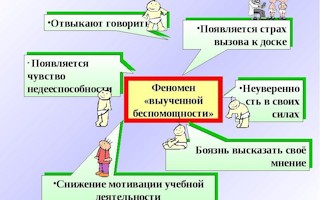Collaboration
Collaborative work

Collaboration is working with others to do a task and to achieve shared goals. It is a recursive process where two or more people or organizations work together to realize shared goals, (this is more than the intersection of common goals seen in co-operative ventures, but a deep, collective determination to reach an identical objective) — for example, an endeavor that is creative in nature—by sharing knowledge, learning and building consensus. Most collaboration requires leadership, although the form of leadership can be social within a decentralized and egalitarian group. In particular, teams that work collaboratively can obtain greater resources, recognition and reward when facing competition for finite resources. Collaboration is also present in opposing goals exhibiting the notion of adversarial collaboration, though this is not a common case for using the word. Wikipedia
Coworking is a style of work that involves a shared working environment, often an office, and independent activity. Unlike in a typical office environment, those coworking are usually not employed by the same organization. Typically it is attractive to work-at-home professionals, independent contractors, or people who travel frequently who end up working in relative isolation. Coworking is also the social gathering of a group of people who are still working independently, but who share values, and who are interested in the synergy that can happen from working with people who value working in the same place alongside each other. Wikipedia
A hackerspace (also referred to as a hacklab, makerspace or hackspace) is a community-operated workspace where people with common interests, often in computers, machining, technology, science, digital art or electronic art, can meet, socialize and collaborate.[1] Hackerspaces have also been compared to other community-operated spaces with similar aims and mechanisms such as Fab Lab, Men's Sheds, and with commercial "for profit" companies such as TechShop. Wikipedia
A fab lab (fabrication laboratory) is a small-scale workshop offering (personal) digital fabrication. A fab lab is generally equipped with an array of flexible computer controlled tools that cover several different length scales and various materials, with the aim to make "almost anything". This includes technology-enabled products generally perceived as limited to mass production. While fab labs have yet to compete with mass production and its associated economies of scale in fabricating widely distributed products, they have already shown the potential to empower individuals to create smart devices for themselves. These devices can be tailored to local or personal needs in ways that are not practical or economical using mass production. Wikipedia
Services for Collaboration
sites.google.com/site/bbslavin
Publications

Learned helplessness: why employees behave like small children
Infantilism, listlessness and lack of independence - the distinctive features of Homo Soveticus. Why very few people willing to take responsibility and how to deal with it in Russia. Read more...

In the fall, I decided to give all the finances in the hands of employees - and that's what happened
Stanislav Sazhin, founder of the social network for physicians "Doctor at work", continues the story about the internal structure of the company. Today - the second governing body, the Finance Committee. Read more...

Technology companies constantly innovate, not only for its products but also for internal processes. That is why Zappos, Medium, GitHub, and others have become adepts holakratii - control without hierarchies and managers. How companies it makes sense to go to holakratiyu and how this will help agile-methods, says a leading coach company ScrumTrek Chirikov. Read more...

Business Plan Public Workshop MakerSpace
Co-founder of Artisan’s Asylum, Somerville, MA, USA Gui Cavalcanti shares his experience of building a business model of public workshop MakerSpace. Read more...

Is it possible to turn the Stanford experiment?
Going to lunch with Dr. Philip Zimbardo, a former president of the American Psychological Association, I, of course, first of all they remembered was organized Stanford Prison Experiment. Read more...

IT-transformation: from process management to the efficient use of human
Further development of information technologies leads to structural changes in the management of both individual companies and departments, and entire regions and industries. How all this can affect the efficiency of government and what changes in the economy may lead. Read more...



